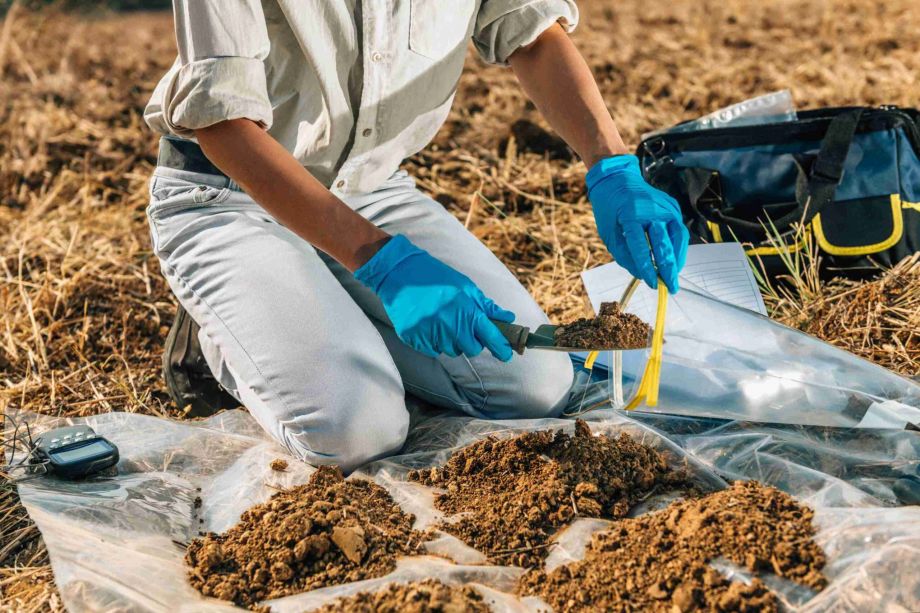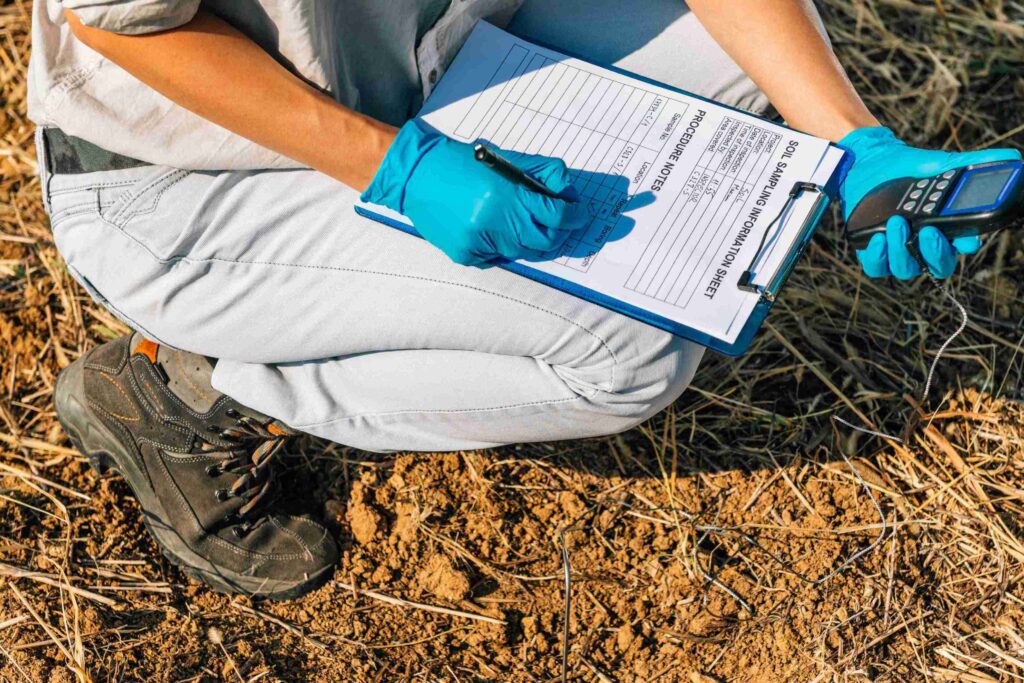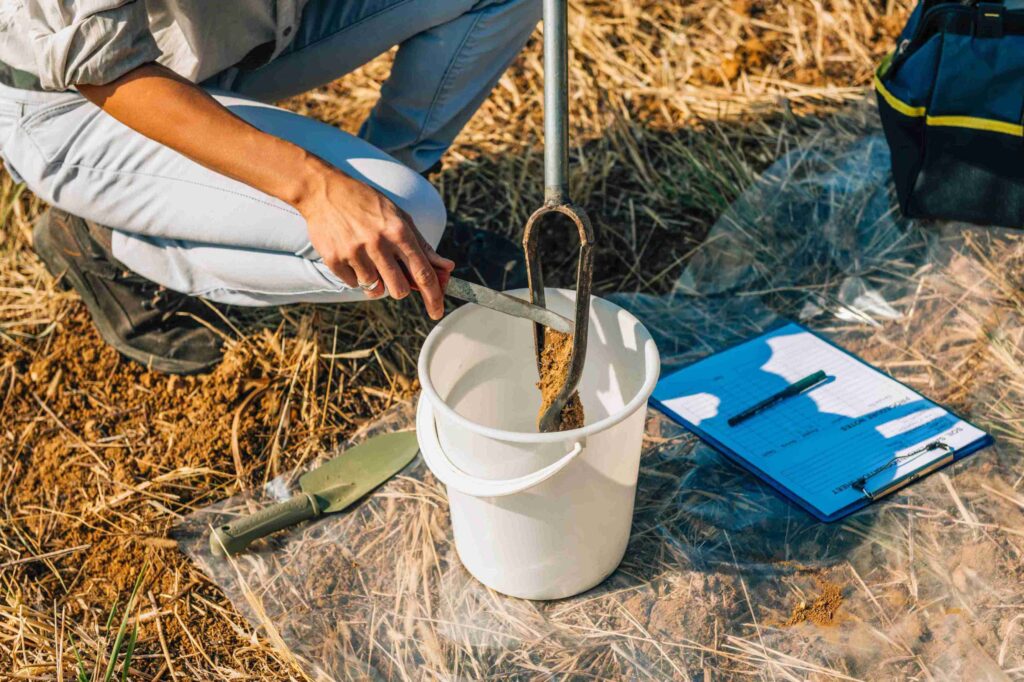
How Much Does Pre-Construction Soil Testing Cost?
Building a new home is an exciting adventure, but before you start laying down the foundation, there’s one crucial step that can’t be overlooked: soil testing.
Pre-construction soil testing helps determine if your land is stable enough to support the weight of your new home.
But let’s face it, no one likes surprise costs, so it’s good to know what to expect when it comes to the price of Pre-construction soil testing.
In this post, we’ll break down the cost of pre-construction soil testing, plus the factors that can affect the price.
Average Pre-Construction Soil Testing Cost
Pre-construction soil testing will run you between $1000 and $15,000.
That’s a wide range, we know, but the final cost depends on several factors. The testing can get more expensive depending on how complex the situation is, how big your lot is, and how deep the testing needs to go.
Here’s a quick breakdown:
- Basic Testing – $1,000 to $3,000 (residential projects like single-family homes)
- Moderate Projects – $3,000 to $7,000 (larger residential or small commercial projects)
- Complex or Large-Scale Projects – $7,000 to $15,000+ (Commercial buildings, high-rises, or sites with challenging conditions)
For most people, you’ll likely be paying somewhere around $2,000 for a typical residential lot.
But again, the cost is very site-specific, so it’s a good idea to get a few quotes from local contractors or geotechnical engineers to get a better idea of what it’ll cost you.

Also Check Out Our: Virginia Geotechnical Reporting Services
Our Pre-Construction Soil Testing Prices
We offer two levels of pre-construction soil testing:
- Limited Geotechnical Testing – $2,500
- Full Geotechnical Testing – $3,500
Both options provide detailed insight into soil conditions to help guide your building plans. The full geotech includes more in-depth analysis, which is often required for larger or more complex builds.
We’ll help you choose the right level of testing based on your project and local requirements.
What Affects The Cost Of Pre-Construction Soil Testing?
So, why the price variation? There are a few things that affect the cost of pre construction soil testing. Some are pretty straightforward, and others might not be as obvious.
Let’s go over the main ones so you can understand what could push your costs up or down:
#1 Size Of The Lot
The size of your lot is probably the most significant factor when it comes to cost.
Simply put, the bigger the lot, the more testing will be required.
Larger lots may need multiple tests to account for variations in the soil across the property. Smaller lots, especially those under half an acre, will generally cost less to test because there’s less ground to cover.
If you’ve got a standard suburban lot, expect to be closer to the lower end of the cost spectrum.
But if you’ve got a sprawling piece of land with lots of acreage, your costs could climb quickly.
Also Read: How Much Does A Soil Test Cost?
#2 Soil And Site Conditions
The type of soil you’re dealing with—and the overall condition of the land—can greatly affect pre-construction soil testing costs too.
If the soil is easy to test and assess, your costs will stay low.
But if your land is on a slope, has a lot of rock, or includes marshy areas, the testing process can become more complicated. Testing for rocks or unstable ground often requires more advanced tools, which can jack up the price.
In areas where there are concerns about things like soil contamination or the presence of harmful materials, extra tests may be needed, which will add to the cost.
And if your land has poor drainage or unstable soil, the tests may need to go deeper or be more specific.
#3 Site Location And Accessibility
Testing is generally more affordable in urban areas because it’s easier for engineers and contractors to get to the site and get the work done. However, if you’re building in a more rural or remote area, your costs may go up because of travel time and additional logistics.
If the land is difficult to access—say, it’s on a steep hill or deep in the woods—it can take longer to set up the testing equipment, which can also drive up costs.
So, if your lot is in a tricky spot to reach, expect some added fees to cover the extra work and time needed to get things done.
#4 Type Of Testing Required
Soil testing isn’t one-size-fits-all. Different projects need different tests.
Basic tests determine soil classification, bearing capacity, and moisture content. These form the foundation of any testing package.
For specific concerns, you might need:
- Percolation tests for septic systems ($300-$800 additional)
- Expansion/shrinkage analysis for clay soils ($400-$900 additional)
- Density testing for pavement design ($500-$1,200 additional)
Each specialized test adds to your total. Your engineer will recommend tests based on your project needs and local building code requirements.

#5 Depth Of Testing
How deep the soil testing goes is another factor that affects the cost.
Shallow tests, which are only a few feet deep, are relatively inexpensive and usually enough for most homes.
However, if you’re building a multi-story home or something with a basement, you may need deeper testing to check the soil’s stability at greater depths.
The deeper you need to go, the more expensive it can get because the testing process is more complex and requires more resources.
Also Read: How much does stormwater management cost?
#6 Permit Or Inspection Fees
Don’t forget the paperwork! Many Virginia localities require permits for soil boring activities. These permit fees typically range from $75 to $300 depending on the jurisdiction.
Some counties require a county inspector to be present during testing, which adds another layer of coordination and potential costs.
Environmental permits might also be needed if you’re testing in protected areas or near waterways. These can add several hundred dollars to your project.
Bottom Line
Pre-construction soil testing costs around $1,000 – $15,000.
It’s one of the smartest investments you’ll make in your construction project. The cost of fixing foundation issues or structural problems later will dwarf what you spend on proper testing now.
We always recommend getting multiple quotes from qualified geotechnical engineers.
Make sure they explain exactly what tests they’re performing and why.
The cheapest quote isn’t always the best value—comprehensive testing from experienced professionals is worth paying for.







